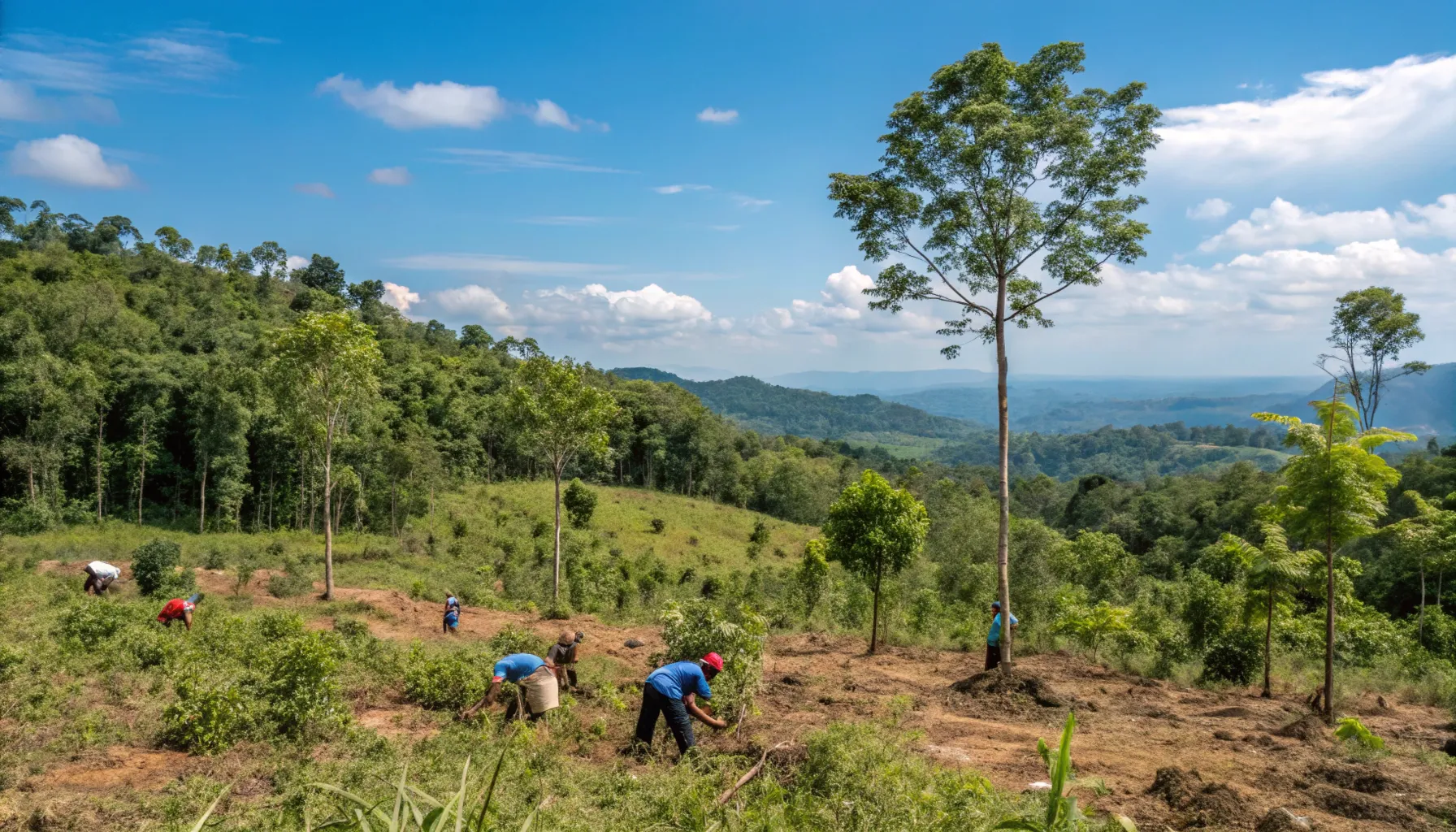Table of Contents
For centuries, humans have depended on the natural world for food, shelter, and medicine. However, with the rapid industrialization and expansion of human activity, environmental degradation has put both nature and human health at risk. In recent decades, the connection between protecting nature and improving global health has become increasingly clear. Climate change, deforestation, pollution, and loss of biodiversity are directly linked to health challenges, from respiratory diseases to the spread of infectious diseases. On the flip side, when we take steps to preserve and restore natural ecosystems, we not only protect biodiversity but also reduce the negative impacts of environmental changes on public health. This blog will explore how sustainable practices, preserving natural resources, and addressing climate change can improve health outcomes worldwide.
Observation: When we protect nature, we’re not just saving forests or oceans—we’re also ensuring better health for future generations. Simple actions like reducing waste, conserving water, and supporting green initiatives can make a big difference in both the environment and our well-being.
The Link Between Nature and Health
The connection between nature and human health has been recognized for centuries. When we protect and restore natural environments, we directly impact our health in positive ways. A healthy ecosystem provides clean air, fresh water, and a stable climate, all of which are essential for good health. Natural spaces like forests, oceans, and wetlands help regulate the climate, prevent soil erosion, and maintain biodiversity. These elements not only support environmental balance but also promote physical and mental well-being. Living in environments that are connected to nature has been shown to reduce stress, boost immune systems, and improve cognitive function.
Some benefits of a healthy natural environment include:
- Reduced air and water pollution, leading to fewer respiratory and waterborne diseases.
- Greater access to nutritious, locally grown foods.
- Improved mental health due to exposure to green spaces.
- Enhanced biodiversity, which contributes to the development of medicines.
- Improved cardiovascular health from outdoor activities.
- Natural climate regulation that prevents extreme weather events.
- Greater community resilience to climate-related challenges.
By protecting nature, we ensure that these benefits continue, promoting healthier lives for all. A balanced environment is crucial for sustaining human health, now and in the future.
Impact of Climate Change on Health
Climate change has increasingly become one of the most significant global challenges, not only for the environment but also for human health. Rising temperatures, shifting weather patterns, and extreme weather events are already having direct and indirect effects on public health. For example, hotter temperatures contribute to the spread of infectious diseases, as warmer climates create ideal conditions for the mosquitoes that carry diseases like malaria and dengue. Additionally, extreme weather events such as floods and wildfires disrupt communities, leading to injuries, mental health issues, and displacement. Climate change also worsens air quality, which increases respiratory issues, especially in vulnerable populations.
For those in recovery, such as individuals attending alcohol rehab, the stress caused by environmental factors can further complicate the healing process. Environmental changes may exacerbate mental health issues and substance abuse, making recovery more difficult. The effects of climate change disproportionately affect the most vulnerable, including low-income communities and the elderly, who may not have access to resources that help mitigate these impacts. By addressing climate change through sustainable practices and supporting policies that focus on environmental health, we can protect both the planet and the well-being of future generations.
Facts: Climate change is projected to lead to over 250,000 additional deaths per year by 2030 due to factors like heat stress, malnutrition, and diseases.
Protecting Biodiversity for Wellness
Biodiversity is crucial for the health of our planet and our own well-being. A rich variety of plant and animal life supports ecosystems that provide essential services, such as clean air, water, and fertile soil. These ecosystems are vital for agriculture, medicine, and even climate regulation. By protecting biodiversity, we ensure that these natural systems remain intact, contributing to a healthier, more sustainable environment. The loss of biodiversity, however, has serious consequences, including the disruption of food sources, increased vulnerability to diseases, and a decline in resources needed for human survival. For instance, many of the medications we rely on today are derived from plants and animals, and a loss of biodiversity could mean losing access to these valuable resources. Protecting biodiversity also plays a role in mental health. Studies have shown that spending time in biodiverse natural environments can reduce stress, improve mood, and promote overall well-being.
By maintaining diverse ecosystems, we help ensure that both the environment and human health thrive together. Efforts to conserve wildlife, protect natural habitats, and prevent deforestation are all essential steps in preserving the biodiversity that supports the health of the planet and its inhabitants. In the end, safeguarding biodiversity is not just an environmental issue, but a key to a healthy future for all.
Sustainable Practices for Health
Adopting sustainable practices not only benefits the environment but also improves personal health. By choosing eco-friendly habits like reducing waste, conserving water, and supporting sustainable agriculture, we help protect the planet while enhancing our well-being. Sustainable living often involves consuming fewer processed foods, exercising outdoors, and reducing exposure to harmful chemicals. These practices promote physical health, mental clarity, and emotional well-being, contributing to a healthier lifestyle and a more resilient planet for future generations.
Also Read: Building Strong Community Foundations Through Public Affairs Services
Green Spaces and Mental Health
Spending time in green spaces has been shown to have a profound positive impact on mental health. Natural environments, such as parks, gardens, and forests, provide a sense of calm and tranquility that helps reduce stress, anxiety, and depression. In urban areas, where concrete and buildings dominate, access to nature is often limited, making it even more important to prioritize green spaces. Studies have found that exposure to nature can improve cognitive function, increase creativity, and boost mood. Regularly visiting green spaces can help individuals feel more connected to the world around them and improve overall emotional well-being. For example, outdoor activities like walking or jogging in a park can serve as a form of exercise, which also benefits mental health by releasing endorphins.
Here are a few ways that green spaces promote mental wellness:
- They reduce levels of cortisol, the stress hormone.
- They help enhance focus and concentration.
- They improve sleep quality by reducing anxiety and stress.
- They encourage physical activity, which is key to mental health.
- They promote social interaction and reduce feelings of isolation.
By integrating more green spaces into daily life, whether by spending time in parks, gardening, or simply taking walks in nature, people can improve their mental health and overall well-being. Nature provides a natural remedy to the stresses of modern life, offering a sanctuary that restores balance to the mind and body.
Building a Healthier Future
Protecting nature and adopting sustainable practices are essential for building a healthier future for both the planet and its people. By preserving ecosystems, promoting biodiversity, and making eco-conscious choices, we ensure cleaner air, water, and food sources. These efforts not only enhance environmental health but also contribute to better physical and mental well-being, creating a more balanced and resilient world for future generations to thrive in.




